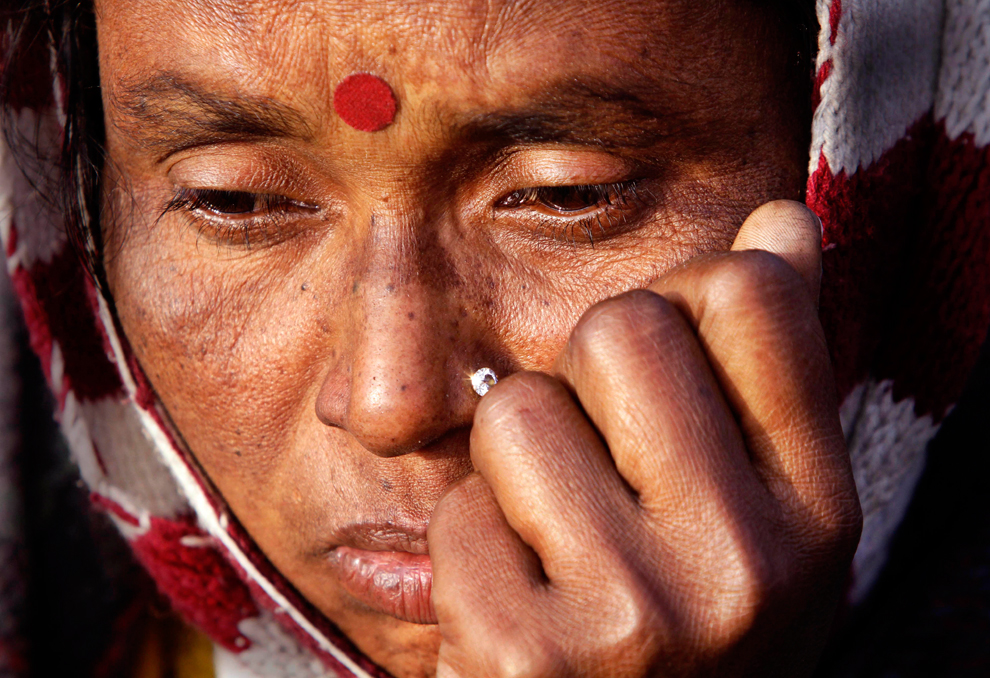Not Much to Be Happy About? India Lags Behind China, Pakistan in Happiness

NEW DELHI: India ranked a lowly 122 on a list of the world's happiest countries, dropping four slots from last year and surprisingly coming behind China, Pakistan and Nepal.
The report was released at an event celebrating International Day of Happiness on March 27. It is the fifth report to come out since 2012. India’s ranking behind terror-riven Pakistan and the poorest-of-poor Nepal in the global list of the happiest countries is a cause of grave concern.
India is behind the majority of South Asian Association for Regional Cooperation (Saarc) nations, apart from war-ravaged Afghanistan, that stood at 141. Among the eight Saarc nations, Pakistan was at position 80, Nepal stood at 99, Bhutan at 97, Bangladesh at 110 while Sri Lanka was at 120. Maldives did not figure in the World Happiness Report.
Norway ranks as the happiest country in the world, according to The World Happiness Report 2017, which ranks 155 countries by their happiness levels. Norway jumped three spots from last year, displacing Denmark, which had held the top spot for three out of the past four years.
India comes in on the 122nd spot, down from 118 in the 2013-2015 report, which maps happiness on the parameters of GDP per capita, social support, healthy life expectancy, freedom to make life choices, generosity and perceptions of corruption.
In those surveys, people give scores from 1 to 10 on how much social support they feel they have if something goes wrong, their freedom to make their own life choices, their sense of how corrupt their society is and how generous they are.
Nations such as China (79), Pakistan (80), Nepal (99), Bangladesh (110), Iraq (117) and Sri Lanka (120) fared better than India on the ranking.
"The World Happiness Report continues to draw global attention around the need to create sound policy for what matters most to people -- their well-being," said Jeffrey Sachs, Director of the Sustainable Development Solutions Network that produced the report.
"As demonstrated by many countries, this report gives evidence that happiness is a result of creating strong social foundations. It's time to build social trust and healthy lives, not guns or walls. Let's hold our leaders to this fact," he said.
Rounding out the rest of the top ten in order were Denmark, Iceland, Switzerland, Finland, Netherlands, Canada, New Zealand, Australia and Sweden. The US ranked 14th, dropping down one spot from last year, the report said.
Despite recent declines in oil prices, oil-rich Norway still moved into the top spot, illustrating once more that high happiness depends on much more than income, it said. This year the report gives special attention to the social foundations of happiness, including happiness at workplace.
"People tend to spend the majority of their lives working, so it is important to understand the role that employment and unemployment play in shaping happiness," said Professor Jan-Emmanuel De Neve of the University of Oxford. He said research reveals that happiness differs considerably across employment status, job type, and industry sectors. "People in well paid roles are happier, but money is only one predictive measure of happiness. Work-life balance, job variety and the level of autonomy are other significant drivers," De Neve said.
The report also highlights the personal factors affecting happiness, saying, "In rich countries the biggest single cause of misery is mental illness."
The World Happiness Report 2017 looks at trends in the data recording how highly people evaluate their lives on a scale running from 0 to 10. The rankings, which are based on surveys in 155 countries covering the three years 2014-2016, reveal an average score of 5.3 (out of 10).
Studying happiness may seem frivolous, but serious academics have long been calling for more testing about people’s emotional well being, especially in the United States.
In 2013, the National Academy of Sciences issued a report recommending that federal statistics and surveys, which normally deal with income, spending, health and housing, include a few extra questions on happiness because it would lead to better policy that affects people’s lives. The entire top ten were wealthier developed nations. Yet money is not the only ingredient in the recipe for happiness, the report said.
In fact, among the wealthier countries the differences in happiness levels had a lot to do with “differences in mental health, physical health and personal relationships: the biggest single source of misery is mental illness,” the report said.
“Income differences matter more in poorer countries, but even their mental illness is a major source of misery,” it added. Another major country, China, has made major economic strides in recent years. But its people are not happier than 25 years ago, it found.
The United States meanwhile slipped to the number 14 spot due to less social support and greater corruption; those very factors play into why Nordic countries fare better on this scale of smiles.
“What works in the Nordic countries is a sense of community and understanding in the common good,” said Meik Wiking, chief executive officer of the Happiness Research Institute in Copenhagen, who wasn’t part of the global scientific study that came out with the rankings.
India is one of the fastest growing country in the world and has to be concerned as to why has it fallen below China, Pakistan, Nepal and Bangladesh in the world’s happiest countries report.
This year’s report has given special attention to the social foundations of happiness, including happiness at workplace. Hence India needs to concentrate more on people with strong and broad social relationships, as they come out to be happier, healthier and live longer.
(The writer is a retired Professor on ‘International Trade’).



